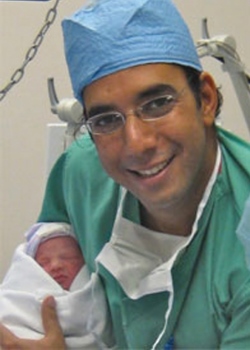Вы здесь
Premature babies may benefit from their own stem cells

Each year in the US, nearly 500,000 babies are born premature. That's 1 of every 8 infants born in the United States. A premature birth is when a baby is born before 37 completed weeks of pregnancy. A full-term pregnancy is 40 weeks. In almost all countries with reliable data, preterm birth rates are increasing.
Globally, prematurity is the leading cause of newborn deaths (babies in the first four weeks of life) and the second leading cause of infant mortality (within the first year of life), after congenital abnormalities. Prematurity is also the second leading cause of death after pneumonia in children under the age of five. In the United States, African Americans and Native Americans have the highest neonatal death rate associated with prematurity.
Prematurity costs an average of $3,000 per day in the Neonatal Intensive Care Unit (NICU), with an overall annual cost of $26 billion dollars per year in the United States.
Important growth and development occur throughout pregnancy - especially in the final months and weeks. Because they are born too early, preemies weigh much less than full-term babies. They may have health problems because their organs did not have enough time to develop. Preemies need special medical care in a NICU. They stay there until their organ systems can work on their own.
These newborns have higher rates of disabilities such as blindness, developmental delays, and cerebral palsy. The more premature the baby, the higher the risk for the development of these disabilities.
Current research is examining whether a newborn's stem cells, from perinatal sources such as umbilical cord blood and cord tissue, can be used to improve common medical complications associated with prematurity. The organ systems that have received the most study to date are the lungs and the brain of premature infants.
The stem cells in cord blood and cord tissue can be collected easily at the time of birth. They are a resource that is available to every child born that would otherwise be discarded. The potential to use the child's own stem cells to produce better clinical outcomes in premature infants is an exciting and promising concept that will be better understood as more studies are conducted and completed.



